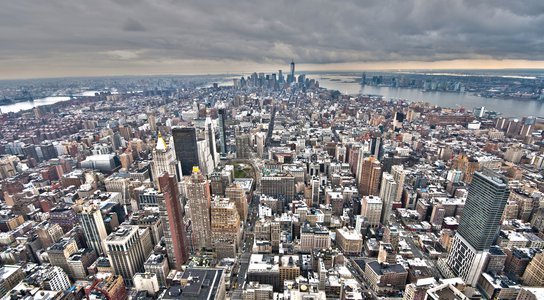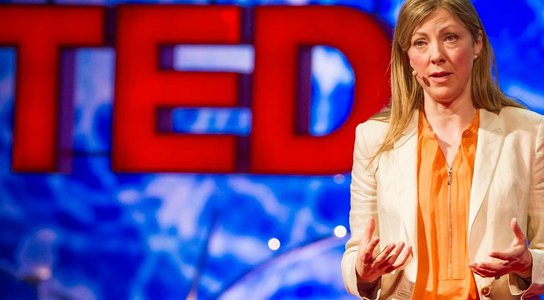Today’s data leak from the International Consortium of Investigative Journalists (ICIJ) lays bare the extent to which corruption, tax evasion, and other criminality is made possible by the global offshore industry. Global Witness is calling for tax havens to end the secrecy that enables this abuse.
Over 60 media outlets collaborating with the ICIJ are publishing a series of stories based on documents leaked from the prominent Panama-based law firm Mossack Fonseca.
“This investigation shows how secretly owned companies, many of them based in the UK’s tax havens, can act as getaway cars for terrorists, dictators, money launderers and tax evaders all over the world. The time has clearly come to take away the keys, by requiring the collection and publication of information on who really owns and controls these companies. This would make it much harder to launder dirty money and leave the rest of us safer as a result,” said Robert Palmer, campaign leader at Global Witness.
In over 20 years of investigations into corruption and financial crime, Global Witness has repeatedly shown how the secrecy that offshore jurisdictions sell allows corrupt officials to steal from their people (1). This kind of corruption props up abusive regimes, keeps developing economies dependent on overseas aid, and fuels instability and extremism. It is also bad for the global economy. IMF research has shown that improving financial transparency has a direct positive impact on credit ratings, (2), while it is estimated that £33bn is lost to corruption and other financial crimes across Africa every year (3).
In May this year, the UK is hosting an international anti-corruption summit. UK Prime Minister David Cameron has a critical opportunity to pressure the UK tax havens featured in the investigation, such as the British Virgin Islands, to match the UK’s commitment to company ownership transparency. According to the World Bank, the UK’s Overseas Territories are the most popular place for the corrupt to incorporate a company (4).
The Prime Minister has spoken of the need for the UK’s Overseas Territories to open up: “Some of the British Crown Dependences and Overseas Territories are making progress in this direction. Others, frankly, are not moving anywhere near fast enough. I say to them all today, including those in this region [the Caribbean], if we want to break the business model of stealing money and hiding it in places where it can’t be seen: transparency is the answer.”(5)
The UK government has the legislative power to make this happen. Today’s news shows that without decisive action to so at the forthcoming summit, its efforts to stamp out global corruption cannot be seen as credible, nor can the summit be seen as a success by the public.
“David Cameron has shown real global leadership in tackling corruption - he now faces a credibility test. Today’s news shows that unless the government uses the upcoming summit to force the UK’s tax havens to end anonymous company ownership, our other efforts won’t be effective in fighting poverty and instability. We have to clean up our own back yard first,” added Palmer.
/ ENDS
Contacts
-
Oliver Courtney
-
Robert Palmer
Notes to editor:
(1) Global Witness, and others, have repeatedly exposed the role of anonymously owned companies in enabling corruption and criminality. Some examples include:
- The DR Congo lost out on $1.3 billion or twice the country’s health and education budgets when key mining assets were sold off extremely cheaply to anonymously-owned British Virgin Island (BVI) companies.
- The ex-Nigerian oil minister, Dan Etete, awarded a lucrative oil block to an anonymously-owned company, that later turned out to be owned by himself. The money from the deal was distributed to BVI companies. The ex-President of Nigeria, Sani Abacha used the pretence of fake national emergencies to steal more than $2 billion from the country. The money was held via BVI, Jersey and other companies.
- In 2004, a former Kenyan anti-corruption advisor, John Githongo, blew the whistle on a massive Kenyan corruption scandal, that became known as the ‘Anglo Leasing’ affair, after the name of one of the BVI companies involved. The scandal cost the country nearly $1 billion.
- The former President of Zambia, Frederick Chiluba, transferred millions of dollars of public money from the Zambian Ministry of Finance into bank accounts and companies for his own personal use. A BVI company with bearer shares was used to buy property in Brussels for one of the people involved in this $25 m scam. In 2006, Zambia brought a civil case in the UK against those involved in the Zamtrop Conspiracy and another case of fraud, the ‘BK Conspiracy’. The judge found that all the Zambian defendants, including Chiluba, had conspired to steal millions of dollars of public funds and held them collectively liable for over $25 million. A criminal case against Chiluba in the Zambian courts resulted in him being acquitted
- The ex-Prime Minister of Pakistan, Benazir Bhutto, and her husband are accused of having received kickbacks from gold import licenses via a BVI company that was secretly owned by Bhutto’s husband. It has been reported that Bhutto and her husband stole over $1 billion from the country.
- Wu
Sue-Jen, the
wife of a former Taiwanese president accepted a $6 million bribe for
encouraging her husband to approve a contested company merger. The money was used to buy property in
Virginia and New York, via a BVI company.
- A former governor of a
Nigeria state, Diepreye Alamieyeseigha,
guilty of corruption and money laundering, used a BVI company to buy four
London properties.
- A
number of large scale corporate bribery cases have involved anonymously-owned
BVI companies, including the British
arms firm BAE Systems, the
metal company Alcoa, the compute rcompany Hewlett-Packard
- Saadi Gaddafi, one of
Colonel Gaddafi’s sons, bought a £10 million house in Hampstead via a BVI
company, Capitana Seas Limited. The High
Court in London ruled that the property rightfully belongs to the Libyan state
as it had been purchased with diverted Libyan state funds.
- The Marange diamond fields
in Zimbabwe are notorious for human rights abuses. One of the companies that mines there, Mbada
Diamonds, is part-owned by Transfrontier, which has an opaque company structure
based in the BVI, Hong Kong and Dubai.[i] The man at the centre of
the 2012 horsemeat scandal, who was convicted of passing off South American horsemeat as Dutch and
German beef, hide his identity behind a Cypriot company and a BVI trust.
(2) Escolano, J. and Arbatli, E. (2012) Fiscal Transparency, Fiscal Performance and Credit Ratings, IMF Working Paper No. 12/156 https://www.imf.org/external/pubs/cat/longres.aspx?sk=25996
(3) See the Guardian, “Africa losing billions from fraud and tax avoidance”
(4) See World Bank report “Puppet Masters: How the corrupt Use Legal Structures to Move Stolen Assets and What To Do About It”
(5) See the Guardian, “David Cameron says not enough being done to tackle tax evasion”
(6) This is not just an offshore problem. In January 2016 a groundbreaking undercover investigation by Global Witness was profiled by CBS’ 60 Minutes programme, showing how the U.S. is a critical player in this global web of secrecy.
You might also like
-
Undercover in New York
Our hidden camera investigation reveals how suspect money can enter the U.S.
-
Briefing The TED Prize
Watch: Global Witness founder reveals how tax evaders, drug cartels and arms traders use anonymous companies to hide criminal activity and keep millions of people in poverty.
-
Press Release Global Witness welcomes UK’s historic rollback of corporate secrecy
David Cameron will pledge today to make public the names of who actually owns and controls British companies, in a move applauded by Global Witness which has been campaigning on this issue for many years. This will make it much harder for criminals to hide their identity behind sham UK shell companies, and for the corrupt to steal billions of dollars from developing countries.